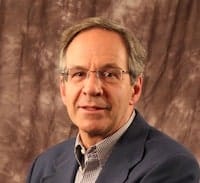Recently we had a discussion with the residents being treated for addiction at St. Joseph Institute. The question posed to the group was “what made it hard for you to enter into treatment.” As residents described their personal stumbling block, a common theme became clear. Recovery demands change, and people are reluctant to accept change, even if it offers them a dramatically better life.
From its earliest days, AA has used the phrase “nothing changes if nothing changes” to describe a principle that must be embraces if the bonds of addiction are to be broken. For decades there has been a challenge to addicts to change the “people, places and things” that pull them back to their abuse of drugs and alcohol. However, like so many slogans, lip service rather than concrete action often defines the subsequent behavior.
This same group of residents was highly critical of the medical interventions that had been used to curb their addiction. Methadone, buprenorphine, and naltrexone had been taken by many, only to result in relapse during treatment, or soon after the medication was discontinued. “Why did that happen,” I asked.
The responses were immediate and unified. “Because we did not change our lives and expected the medication to ensure our recovery” voiced one resident to quick affirmation from the others. Their comments point to the Achilles heel of healthcare. Too often we focus our energy on symptomatic treatment, while giving too little attention to the necessary lifestyle and behavioral changes that will lead to lasting resolution.
In making the decision to come to treatment, a young mother commented: “I felt like someone with a broken leg throwing away my crutches.” This statement acknowledges how often addiction is the symptom for unresolved physical or emotional pain and self-medication is a primary reason for using. In addiction treatment it is easy to offer people “Band-Aids,” rather than seek a deeper, lasting solution. The process of personal growth, healing, and recovery requires an investment by healthcare providers to be a catalyst for change. This demands a commitment of time and effort that contradicts standard medical practice, and the support of insurance companies.
There are two camps in addiction treatment that are in conflict. Those who advocate for an “abstinence based” model are proponents of radical behavioral change. They argue that only by creating a lifestyle where it is “easier not to use” does lasting recovery occur. The other camp focuses more on “harm reduction,” using medications as a means to control the disease of addiction. While a medication to reduce cravings and control urges offer to some an improved quality of life, without change, the individual’s recovery is precarious.
The debates will rage on. New medications and treatment modalities will be introduced. However, the simple truth — acknowledged generations ago — remains the same. Recovery from addiction requires personal change. Life must be lived differently. If we avoid this hard reality, we may manage the disease for a time, but we can never be free from it. I believe the sooner addicts, alcoholics, their families, and healthcare professionals become united in the need for radical lifestyle change, the sooner we will see the success rates for those in recovery climb higher.
Michael Campbell is the president of St. Joseph Institute, a leading drug and alcohol treatment center located near State College, Pennsylvania. www.stjosephinstitute.com
Throughout the year, our writers feature fresh, in-depth, and relevant information for our audience of 40,000+ healthcare leaders and professionals. As a healthcare business publication, we cover and cherish our relationship with the entire health care industry including administrators, nurses, physicians, physical therapists, pharmacists, and more. We cover a broad spectrum from hospitals to medical offices to outpatient services to eye surgery centers to university settings. We focus on rehabilitation, nursing homes, home care, hospice as well as men’s health, women’s heath, and pediatrics.








